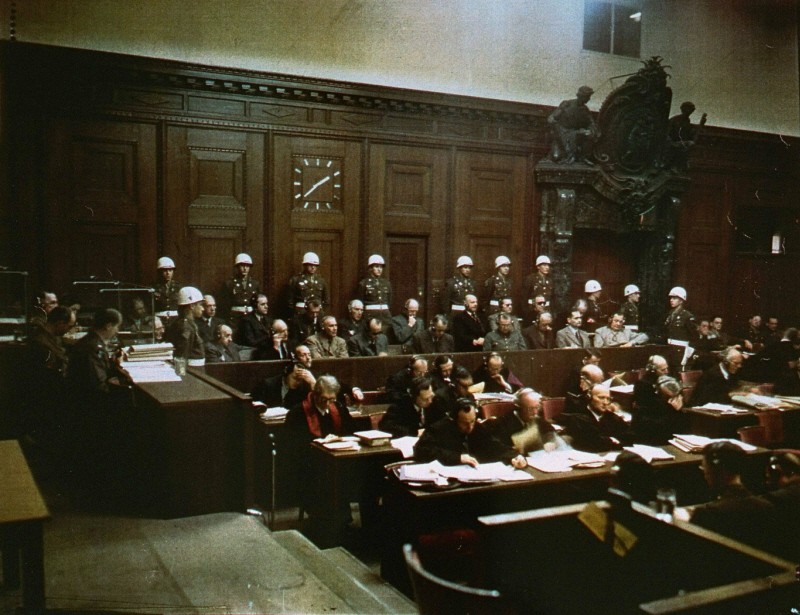
Walther Funk
In the immediate aftermath of the Holocaust, the world was faced with a challenge—how to hold individually accountable those German leaders who were responsible for the commission of monstrous crimes against humanity and international peace. The International Military Tribunal (IMT) held in Nuremberg, Germany, attempted to face this immense challenge. On October 18, 1945, the chief prosecutors of the IMT brought charges against 24 leading German officials, among them Walther Funk.
Walther Funk (1890–1960) was Minister of Economics and President of the Reichsbank (national bank) in Germany. Funk participated in efforts to drive German Jews from the economy and played a major role in recycling confiscated property, valuables, and financial assets of Holocaust victims into the German war economy.
Found guilty on counts two, three, and four (crimes against peace, war crimes, and crimes against humanity), Funk was sentenced to life imprisonment. He was released in 1957 due to poor health.
Critical Thinking Questions
Explore how challenges to ethical behavior and leadership played out in the context of the Holocaust. How do these challenges confront us today?
Across Europe, the Nazis found countless willing helpers who collaborated or were complicit in their crimes. What motives and pressures led so many individuals to persecute, to murder, or to abandon their fellow human beings?
How were various professions involved in implementing Nazi policies and ideology? Who was brought to trial after the Holocaust?
How can knowledge of the events in Germany and Europe before the Nazis came to power help citizens today respond to threats of genocide and mass atrocity in the world?
Beyond the verdicts, what impact can trials have?

